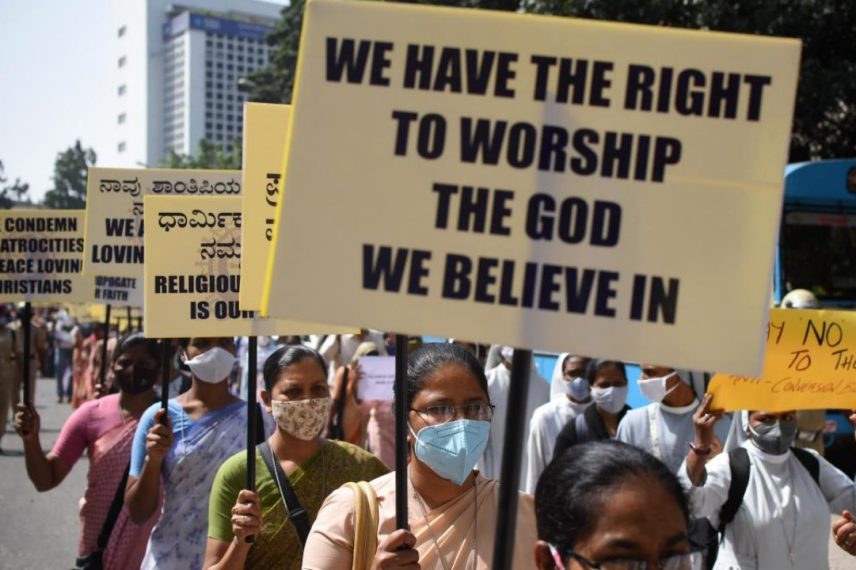Federal India does not have an anti-conversion law, but India’s twelve states have implemented it and in practice. Indian Constitution’s article 25 expresses, “all persons are equally entitled to freedom of conscience and the right freely to profess, practice, and propagate religion.” Almost half of the Indian population is entitled not to confess their faith to other faith groups. Does this anti-conversion law conflict with Indian Constitution?
Yesterday (10th March 2022), India’s 5 state elections result was released. Without any surprise, BJP (Bharatiya Janata Party) wins 4 out of 5. Most importantly, wins in Uttar Pradesh(UP), a state which holds the most number of parliamentary seats. It concretes Modi’s next term as the prime minister of India. Also firms Ajay Singh Bisht, aka Yogi Adityanath’s pitch as the future of the BJP or future prime ministerial candidate of BJP.
Though UP is not a front-runner state on social welfare development as Niti Aayog index 2021 lists UP at the bottom, the election results show otherwise. Yogi wins comprehensively. Why the people of UP do not consider the state’s administrative skills as a voting consideration? Moreover, the second COVID-19 wave wrecked the state, many lost lives and crematoriums ran out of their capacity. Many dead bodies flew over the Ganges, and its shores became a massive burial ground.
The anti-conversion law is active in UP. Who does it benefit? Clearly, the upper caste Hindus and the BJP party are the ones. But how did the people react to it? Presumably positive. In 2002, J. Jayalalithaa, the former chief minister of Tamilnadu brought anti-conversion law. But it did not go well in the next election. Her party did not win a single seat in the 2004 union poll. The result made her repeal the law of anti-conversion. So the recent state-level election in UP has shown that people accept BJP’s agenda ‘Anti-conversion Law’.
Muslims, Christians, Dalits and Tribals are the main victims of this bill. They are the targets this anti-conversion law affects mostly. Their loyalty has been questioned? Many converts to Islam and Christianity are from the Dalits and Adivasis. And Muslims and Christians have their faith rooted in the Middle East unlike Hinduism, Buddhism, Jainism and Sikhism emerged from the Indian sub-continent.
OpenDoors watchlist ranks India ten in the world among persecuted Christians. It is not an assumption but on facts. The Christian population is only less than three per cent of the Indian population of 1.4 billion. Hindus occupy more than 80%. However, projecting minority Christians as a threat to majority Hindus is a conspiracy rather than a reality. But people are facing a dilemma to discern what is real and what is not real? UP election is an example of how people are confused and believe Hindus are in danger under minorities, especially under Muslims.
Not only is anti-conversion law against the Indian Constitution, but it is also against Muslims, Christians, Untouchables and Adivasis. The anti-conversion bill is the anti-minority.
